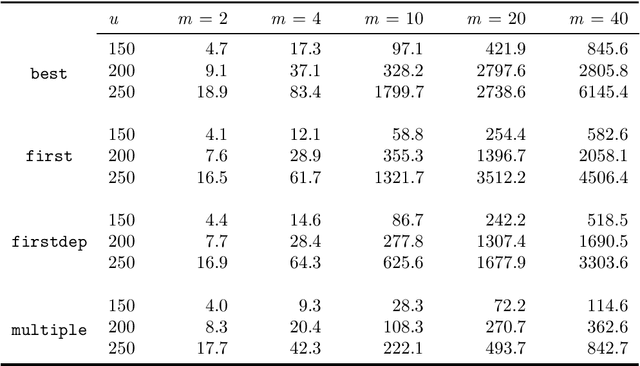Modeling and solving the multimodal car- and ride-sharing problem
Paper and Code
Jan 15, 2020



We introduce the multimodal car- and ride-sharing problem (MMCRP), in which a pool of cars is used to cover a set of ride requests, while uncovered requests are assigned to other modes of transport (MOT). A car's route consists of one or more trips. Each trip must have a specific but non-predetermined driver, start in a depot and finish in a (possibly different) depot. Ride-sharing between users is allowed, even when two rides do not have the same origin and/or destination. A user has always the option of using other modes of transport according to an individual list of preferences. The problem can be formulated as a vehicle scheduling problem. In order to solve the problem, an auxiliary graph is constructed in which each trip starting and ending in a depot, and covering possible ride-shares, is modeled as an edge in a time-space graph. We propose a two-layer decomposition algorithm based on column generation, where the master problem ensures that each request can only be covered at most once, and the pricing problem generates new promising routes by solving a kind of shortest path problem in a time-space network. Computational experiments based on realistic instances are reported. The benchmark instances are based on demographic, spatial, and economic data of Vienna, Austria. We solve large instances with the column generation based approach to near optimality in reasonable time, and we further investigate various exact and heuristic pricing schemes.
 Add to Chrome
Add to Chrome Add to Firefox
Add to Firefox Add to Edge
Add to Edge